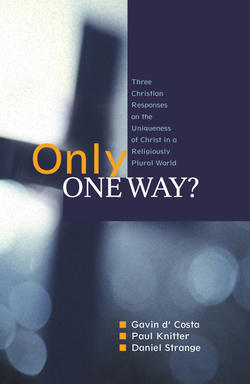Читать книгу Only One Way? - Gavin D'Costa - Страница 27
На сайте Литреса книга снята с продажи.
Watch your language!
ОглавлениеBut the words that make up the conversation that is theology are a very special kind of words. They’re special because their subject-matter is special. Theology, after all, literally means theo-logia– words about God. And if, as is commonly said, there are some things that are simply ‘more than words can say’, the reality of God has to be on the top of that list. In all the religions of the world, God or Ultimate Reality or Brahman or Sunyata is recognized as Mystery – that is, beyond human comprehension. And that means beyond human words. Therefore, if we ever think that our words or ideas are saying something about God in a final or full way, we are sadly, and dangerously, deluding ourselves. Augustine of Hippo’s version of this truth should take the wind out of the sails of any theologian or Pope:
If you have understood, then it is not God. If you were able to understand, then you understood something else instead of God. If you were able to understand partially, then you have deceived yourself with your own thoughts.3
Therefore, in my work as a theologian, and in my prayer as a Christian, I follow theologians like Paul Tillich and my teacher Karl Rahner in recognizing that all our ‘God talk’ is symbolic.4 To speak about the Divine and things divine, we have to speak in symbols– that is, in metaphors, analogies, images. We should never think that our symbols or our notions capture all that can be said about God. Yes, they say something. But they never say everything. The Buddhists have a symbolic image to make this point: when we try to speak about our deepest spiritual experiences – what they call Awakening or Nirvana – we must remember that our words, all our words, are ‘fingers pointing to the moon’. Our words are never the moon itself. To identify our pointing fingers with the moon – or our language about God with God – is to make our fingers and our words into idols. That’s what Augustine was worried about.
And if all our words are symbols, then, in general, they should not be taken literally. This is a tricky, disputed issue. Yes, the Bible or a church council are making what philosophers call ‘truth claims’, when they tell us that ‘Jesus died on the cross and rose from the dead’ or that ‘the angel Gabriel appears to Mary’. They are announcing something that is really, actually true, something we can rely on. But there is always more to say, always a different way to say it. Religious language is much closer to poetry than to philosophy, more like a painting than a photograph. Therefore, the guideline for enabling religious language to ‘work’ for us is this: always take such language seriously; but be careful of taking it literally.
